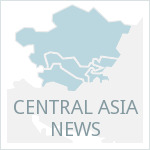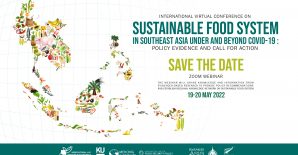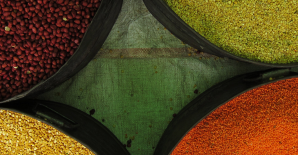News
"High-Level International Conference on International Decade for Action 'Water for Sustainable Development' 2018-2028" concludes in Tajikistan
A two-day international conference on water management concluded on June 21 in Dushanbe, Tajikistan. The conference was organized by the government of Tajikistan and several international agencies. The conference featured the participation of the Tajikistan's President Emomali Rahmon, Afghanistan's Chief Executive Abdullah Abdullah, the presidents of Pakistan and Turkmenistan, and officials of international organizations such as the World Bank. - Wsdconf2018.org, TOLOnews, Geo, Turkmenistan.ru, World Bank
World Bank says Tajik Rogun power plant financing off the table
The government of Tajikistan has decided not to borrow from the World Bank to finance the construction of the Rogun Dam, according to World Bank vice president for Europe and Central Asia Cyril Muller. The World Bank will instead focus on upgrading the Nurek hydroelectric power plant. The first of Rogun's six planned turbines is expected to go into operation in December and proceeds from power sales are expected to partly finance further construction. Tajikistan could look to international bond markets to raise funds for Rogun, following its $500 million Eurobond debut last year. - Reuters
Additional ADB support to improve water management in Tajikistan
The Asian Development Bank will provide an additional $6.5 million in grants for ongoing efforts to improve water resources management in the Pyanj river basin in southern Tajikistan. The Green Climate Fund (GCF) will also add a $5 million grant that will be administered by ADB. The grants will help expand the current project's scope to include capacity building and institutional development of the State Agency for Hydrometeorology of Tajikistan. - ADB
Tajikistan significantly reduced flour imports and increased wheat purchases in first five months of 2018
Tajikistan imported 14,300 tons of flour in from January through May of this year, down 9,100 tons from the same period last year. Meanwhile, wheat imports increased by 45,400 tons to 405,400 tons according to the Ministry of Economic Development and Trade. Tajikistan has recently increased its grain processing volumes, which could account for the decrease in flour imports. Kazakhstan continues to be the main supplier of both flour and wheat to Tajikistan. - APK-Inform
Trade turnover between Uzbekistan and Tajikistan doubles
Trade turnover between Uzbekistan and Tajikistan totaled $94 million in the first five months of 2018, representing a doubling of last year's figure over the same period. Tajikistan exported $54 million worth of goods to Uzbekistan, which made Uzbekistan the second country after Moldova with whom Tajikistan has a positive trade balance. - Trend News Agency
ADB approves $300 million loan to support economic reform program in Uzbekistan
The Asian Development Bank has approved a $300 million loan to help improve economic management in Uzbekistan. The Economic Management Improvement Program will support government efforts to ensure fiscal sustainability and improve governance in state-owned enterprises. Moreover, the project will also seek to improve access to bank finance by strengthening bank supervision and data collection. - ADB
IFC invests in KazFoodProducts, boosts agribusiness in Kazakhstan
The International Finance Corporation, a member of the World Bank Group, is investing $25 million in KazFoodProducts LLP, a leading food processing consortium in Kazakhstan. KazFoodProducts, which currently is engaged in the grain milling and confectionary sectors, plans to diversify its product line and expand its packaged food business with help from IFC financing. IFC will also contribute advisory services that will help KazFoodProducts ensure food safety, governance, and sustainability standards. - IFC
Fruit-processing plant launched in Kyrgyzstan
USAID and Kyrgyz-Tajik joint venture Altin Aymak launched a new dried fruits processing plant in the Batken region of Kyrgyzstan. The factory was launched within the framework of USAID's Agro Horizon project, which has worked in four regions of Kyrgyzstan for four years to help smaller farmers increase their income. - AzerNews
Analysis & Related Information
Secrets to successful irrigation management from Central Asia
Soumya Balsubramanya, a senior researcher at IWMI, discusses irrigation management in Tajikistan, where the growth of water user associations (WUAs) has provided valuable insights relating to gender inclusiveness. Supported by the government and international donors, WUAs became the focus of irrigation strategies following the end of the civil war. Balsubramanya highlights disparities in terms of WUA participation between new male and female farm managers, which she believes could undermine the viability of irrigation management systems especially when factoring in large scale male out-migration from rural areas. - World Bank
Uzbekistan's new era might just be real
An Uzbek broadcaster for Voice of America expresses her optimism for the reforms taking place in Uzbekistan in this op-ed directed toward American policymakers. Navbahor Imamova, the author of the piece, urges American leaders to restore funding for educational fellowships in particular, noting that many skilled U.S.-based expatriates are considering returning to Uzbekistan for potential opportunities in their home country. - Foreign Policy
Publications & Reports
The 'Belt and Road Initiative' in the discourses of the Central Asian states: political rhetoric of growth and academic prognostication
M. Danilovich (2018). Journal of Chinese Economic and Business Studies, online version ahead of publication.
More people, more food ... worse water? A global review of water pollution from agriculture
FAO and IWMI (2018).
Spatial distribution, temporal variation, and transport characteristics of atmospheric water vapor over Central Asia and the arid region of China
X. Guan, L. Yang, Y. Zhang, J. Li (2018). Global and Planetary Change, online version ahead of publication.
Fertilizer nitrogen use by spring triticale and spring wheat on dark-chestnut soil of the dry steppe zone of Kazakhstan
A. Zavalin et al. (2018). Russian Agricultural Sciences, 44(2), pp.153-156.
Events & Call for Papers
Annual Life in Kyrgyzstan Conference
Annual conference and call for papers. 17-18 October 2018 in Bishkek, Kyrgyzstan. The University of Central Asia's (UCA) Institute of Public Policy and Administration, International Security and Development Center (ISDC), and the Leibniz Institute of Vegetable and Ornamental Crops (IGZ) are organizing the fourth annual Life in Kyrgyzstan Conference. Organizers are accepting proposals for sessions and/or presentations of papers. Please click on the above link or contact likconference2018@gmail.com for additional details. Deadline for proposals is 30 June 2018.
"Agriculture Trade and Foreign Investments for Sustainable Regional Integration in Caucasus and Central Asia" Conference
6 – 7 September 2018 in Baku, Azerbaijan. Organized by Leibniz Institute of Agricultural Development in Transition Economics (IAMO) and Institute of Scientific Research on Economic Reforms (ISRER). The aim of this conference is to serve as a platform to discuss options for regional integration in the Caucasus and Central Asian countries and to explore opportunities for increasing agricultural exports from the region. Researchers, public officials, and private sector partners are invited to participate. The conference will be conducted in English and Russian. Please click on the above link for further details.
Archived issues of the news digest can be found on the Central Asia page under the ReSAKSS Asia website: http://resakss-asia.org/regions/central-asia. A link to the newsletter can be found under Blog Posts.
The articles included in this news digest have been generated from online sources. Any opinions stated herein are not representative of, or endorsed by, the International Food Policy Research Institute or its partners.



